Back to the importance of February in History.
| February 1, 1920 | The Royal Canadian Mounted Police, often known as the Mounties, are formed. This is the federal and national police service of Canada, providing law enforcement at the federal level. |

February 2, 1964
G. I. Joe toy action figure hits the market with the original price at $2.49 by Hasbro.

| February 3, 1959 | Rock singers Buddy Holly, Richie Valens and the Big Bopper died in a plane crash. |

| February 4, 1938 | February 4, 1938 – Snow White and the Seven Dwarfs is released in theatres. The premier was shown on December 21, 1937 by Walt Disney Productions. |

February 4, 2004 – Mark Zuckerberg creates Facebook social media platform.
Mark Elliot Zuckerberg is an American media magnate, internet entrepreneur, and philanthropist. He is known for co-founding the social media website Facebook and its parent company Meta Platforms, of which he is the chairman, chief executive officer, and controlling shareholder.

| February 5, 1922 | The first issue of Reader’s Digest was published. Reader’s Digest, U.S.-based monthly magazine, Founded on a low budget by DeWitt Wallace and his wife, Lila Acheson, after numerous magazine publishers had rejected the idea, the pocket-size magazine appealed from the start to popular tastes. |

| February 6, 1929 | The first doughnut machine is sold by TRAUSCH BAKING COMPANY. Established in 1907 as the John P. Trausch Baking Company, the firm remained family owned until 1976. |

February 7, 1812:
- The great British novelist Charles Dickens was born in Portsmouth, England.
- He is best known for his wonderful works in writing and always regarded as a literary genius. He wrote memorable novels there by created some world popular fictional characters in his novels. He wrote about 15 novels, five mini novels, and hundreds of short stories. He died at the age of 58 on June 9, 1870 in Higham, Kent, England.
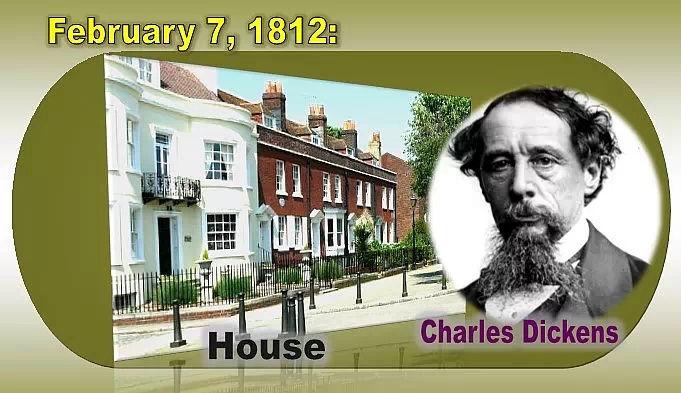
February 8, 1974:
- It was the final day of the use of the U.S. space station Skylab. It was a part of the series of NASA’s space program. Skylab was launched on May 14, 1973 and it occupied 171 days in the space. It was unable to re-boost and lost its orbit. It disintegrated and scattered debris in the earth’s atmosphere on July 11, 1979 in the region of Western Australia.
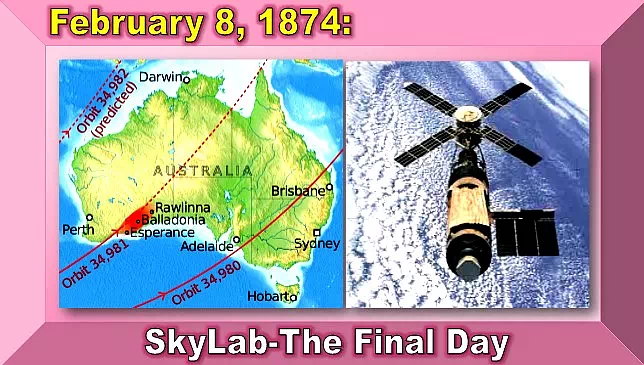
February 9, 1996:
- Copernicium was synthesized by Peter Armbruster, a German physicist, and his team. It was the 112th chemically synthesized transuranium element with the symbol Cn.
- It was made by synthesizing several unstable radioactive isotopes in the laboratory. It is named after the astronomer Nicolaus Copernicus.

February 10, 1990:
- The spacecraft Galileo, a flyby spacecraft, flew past Venus at a distance of around 16,000 kilometers (10,000 miles) on its way to Jupiter. Galileo was devised to reach Jupiter by using the swing-by scheme of the Venus-Earth-Earth and launched on October 18, 1989 from Kennedy Space Centre.
- After 14-year space journey, Galileo spacecraft disintegrated and ended while entering the dense atmosphere of Jupiter on September 21, 2003.

February 11, 1847:
- American inventor and businessman Thomas Alva Edison was born in Milan, Ohio, U.S. He held a world record of 1,093 patents singly or jointly.
- There has been a widespread impact of Edison’s inventions on the modern industrial world.
- Some of his great inventions are the electric light bulb, motion picture camera, phonograph, etc. he developed many of his early inventions in his first laboratory in Menlo Park, New Jersey. He died at the age of 84 on October 18, 1931 in West Orange, New Jersey.

February 12, 1809:
- Abraham Lincoln, the 16th president of the United States was born near Hodgenville, Kentucky, U.S.
- He was in office from March 4, 1861 to April 15, 1865 until his assassination by stage actor John Wilkes Booth at Ford’s theatre in Washington D.C. He was the first U.S. President assassinated in office.
- He succeeded in leading the nation through the American Civil war. He promoted the thirteenth Amendment to the United States constitution to outlaw slavery in the U.S.A.
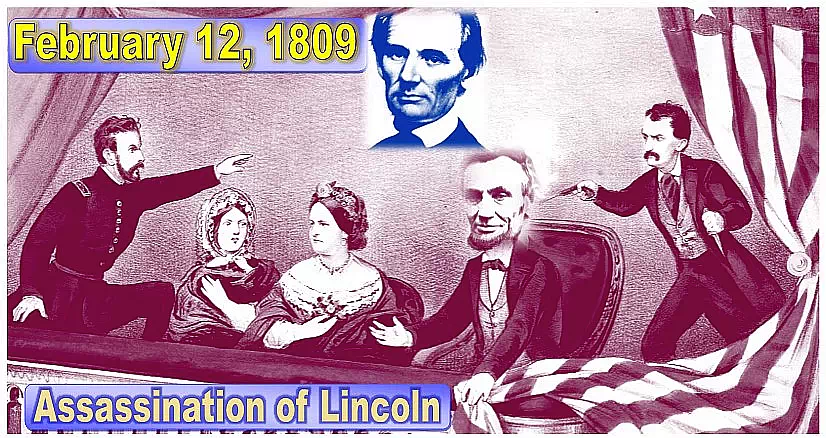
February 13, 2000:
- The last Peanuts, an illustrated American comic strip (Lil Folks was the original title off Peanuts), was published in newspapers.
- It was written Charles M. Schulz. It was stopped just hours after the death of Charles Schulz.
- It was published across the world in over 2600 newspapers in 75 countries with a readership of around 355 million.

February 14, 2005:
- YouTube, an online video-sharing platform, was registered by its founders Steve Chen, Chad Hurley, and Jawed Karim. They worked in PayPal before launching YouTube.
- YouTube allows anyone to operate a personal video channel similar to a Television channel with an extension of video on demand. It has one billion unique visiting users and the most popular of its kind.
- In November 2006, Google bought this site for $1.65 billion US dollars. Now it is the second-most popular website ranked after YouTube.

February 15, 1564:
- Galileo Italian philosopher, astronomer, physicist, engineer and mathematician, was born in Pisa, Italy. He was altogether a polymath.
- He is best known as “the father of modern science”. Galileo made a telescope with up to 30 times magnification of objects.
- His major contributions in astronomy were – “The uneven surface of the Moon, four largest moons of Jupiter, the phases of Venus, identification of Neptune, and studies of the Milky Way, etc.”
- He died at the age of 77 on January 8, 1642 in Arcetri, Italy.
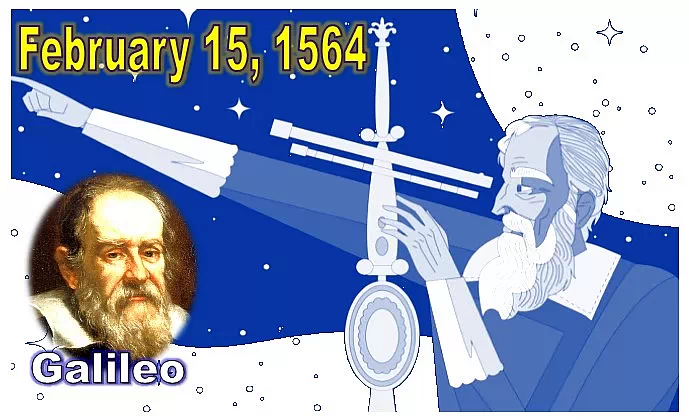
February 16, 1923:
- The tomb of Pharaoh Tutankhamun was unsealed by archaeologist Howard Carter and his team on this day in front of the appointed witnesses, officials, representatives and the authorized Press Bureau. The tomb of the king Tut was actually found by Carter in November 1922 at Thebes in Upper Egypt on the west bank of the Nile.
- More than 5000 valuable items were found in the tomb which were the treasure of priceless contributions from ancient Egyptian dynasties to Egypt.

February 17, 1897:
- Almost over 125 years ago on this day the National Congress of Parents and Teachers Association (PTA) in Washington DC, USA was founded.
- Its formation name was the National Congress of Mothers.
- It is short-named the Parent-Teacher Association (PTA. Its headquarters are at Alexandria, Virginia, U.S.
- The main purpose of PTA’s formation is the prosperity of the school going children. It aims at the physical and intellectual growth of children by providing a common platform between parents and teachers for the betterment of teaching.

February 18, 1930:
- Clyde Tombaugh, American astronomer, discovered Pluto by astrograph (telescope of about 13-inch equals to 33 cm). Firstly, this was counted as the ninth planet and the name ‘Pluto’ was officially adopted on May 1, 1930 by the American Astrological Society and the Royal Astronomical Society as well.
- On August 24, 2006, Pluto was reclassified as a dwarf planet by the International Astronomical Union leaving eight planet in the Solar System.
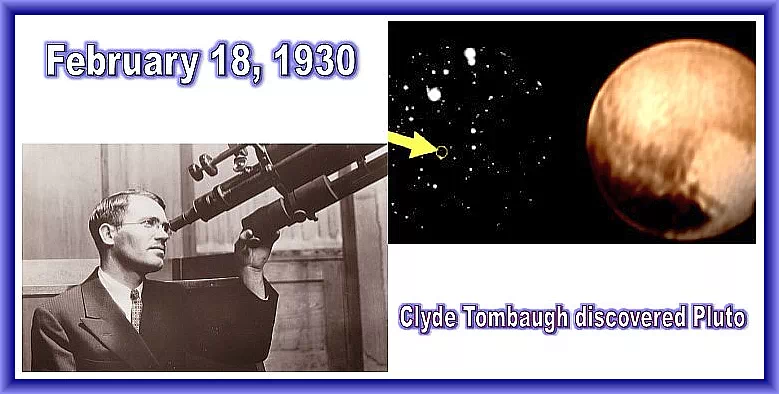
February 19, 1473:
- Nicolaus Copernicus, Polish astronomer, was born on this day in Torun, (Royal Prussia) Poland. He died at the age of 70 on May 24, 1543 in Frauenburg, Poland.
- He is well-known for his heliocentric theory, Quantity theory of money, Gresham-Copernicus law, etc.
- He gave valuable contributions in the fields of Astronomy, Economics, Canon law, Medicine, Mathematics, and Politics. He is said to have knowledge in many languages such as Latin, Polish, Greek, Italian, Hebrew.

February 20, 1872:
- The Metropolitan Museum of Art, the ninth ranked museum in the world, opened to the public at the Fifth Avenue (expensive and the most popular street), in New York City on this day.
- It is colloquially known as “the Met” and contains permanent collections over two million items. It has valuable galleries that display encyclopaedic collections of classical antiquity from nearly all the western world and Eastern hemisphere including modern art of all sorts, musical instruments, costumes, accessories, weapons and armours used across the world, several famous interiors and so on.
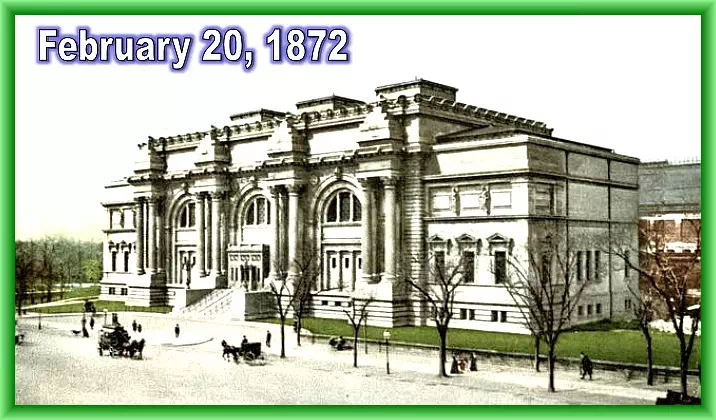
February 21, 1866:
- American Lucy Hobbs Taylor earned the doctorate in dentistry from the Ohio College of Dental Surgery on this day.
- She became the first woman to get a doctorate in dentistry. Her achievements in dentistry have inspired many women to choose dental field later across the world.
- Taylor was posthumously honoured in 1983 by the American Association of Women Dentists (AAWD) by establishing the Lucy Hobbs Taylor Award in recognition of excellence and achievements in dentistry. It is presented annually to AAWD members.
February 22, 1732:
- George Washington, the first president of United States, was born on this day in Virginia, British America. He died at the age of 67 on December 14, 1799 in Mount Vernon, Virginia, U.S.
- He was a military officer, statesman and one of the Founding Fathers of the United States, simply known as Founders or Founding Fathers.
- He played a key role as Founding Father and led the war for independence from Great Britain by uniting thirteen colonies. He built the frame of the first government United States. He is honoured as the Father of the Nation by the people of America.
- The U.S. capital Washington DC was named after him.
February 23, 1905:
- The world’s first Rotary Club was founded on this day in Chicago, Illinois, United States founded by Chicago attorney Paul P. Harris.
- At first it was formed by uniting professionals with diverse backgrounds to exchange ideas and form significant lifelong friendships.
- Rotary’s services and vision, overtime, extended to humanitarian grounds to address challenges in communities around the world.
February 24, 1955:
- American businessman Steve Jobs, cofounder of Apple Inc. was born on this day in San Francisco, California, United States. Until his death on October 5, 2011, he was a charismatic pioneer of the personal computer era.
- He founded Apple with Wozniak in 1976. Their Apple computers were the first highly successful microcomputers on mass scale.
- In 1985 he came out of Apple after a long power struggle in the company. Then he founded a computer platform on the name of NeXT intended to develop specialized computers for the fields of business markets and higher-education.
- Later after acquisition of NeXT by Apple he became the CEO of Apple in 1997.
February 25, 2001:
- Legendary Australian cricketer Don Bradman,, nicknamed ‘The Don’ died on this day at the age of 92 Kensington Park, Australia. He is one of the greatest batsmen in the history of Cricket and often honoured as the greatest player of the 20th century.
- He set many records as a batsman at a young age before 22, and some are still unbroken. Even during the height of the Great Depression of the 1930s in Australia following the Wall Street crash in 1929, he became sporting idol for Australia.
- His undeterred consistency in scoring runs, originated the controversial ‘bodyline’ bowling technique adopted by England team during their Ashes Tour in 1932-33 to curb his scoring.
February 26, 1815:
- Napoleon Bonaparte escaped from the exile of Elba, a Mediterranean island in Italy on this day using French Navy ship Inconstant.
- When he was forced to abdicate as French emperor, he made this escape attempt.
- He returned to Paris on March 20, and took back his power and ruled for a short period, now called the Hundred Days.
- In the battle of Waterloo, he was defeated in 1815 and kept in exile on Saint Helena, a remote island in the Atlantic Ocean until his death at the age of 51 on May 5, 1821.
February 27, 1951:
- The Twenty Second Amendment to the Constitution of U.S. was formally approved (ratified) on this day in 1951.
- This Amendment limits presidential terms to two times for any person stating that “No person shall be elected to the office of the President more than twice, and no person who has held the office of President, or acted as President, for more than two years of a term to which some other person was elected President shall be elected to the office of the President more than once.”
February 28, 1983:
- The final episode of M A S H titled “Goodbye Farewell, and Amen, was telecasted on this day in 1983.
- It was the 16th and the closing episode of the 11th season of M A S H.
- M A S H is an acronym stands for Mobile Army Surgical Hospital. It is an American comedy series based on war and was televised in CBS from 1972 to 1883.
- It stands among one of the highest-rated TV shows in the Television history of the U.S.
February 29, 1896:
- Morarji Desai, the fourth Prime Minister of India was born on this day in 1896, in Bulsar District, Bombay Residency, British India.
- He is also credited as the first Non-Congress Prime Minister leading the government formed by the Janata Party. He was in office from 1977 to 1979.
- Morarji Desai was an Indian freedom fighter and politician. In his long political career starting from Chief Minister of Bombay Presidency in 1932, he held many important posts such as Chief Minister Bombay state after independence, Home Minister, Finance Minister, and 2nd Deputy Prime Minister of India and finally became the PM on March 24, 1977. He died on April 10, 1995 at the age of 99 in Bombay, India.
